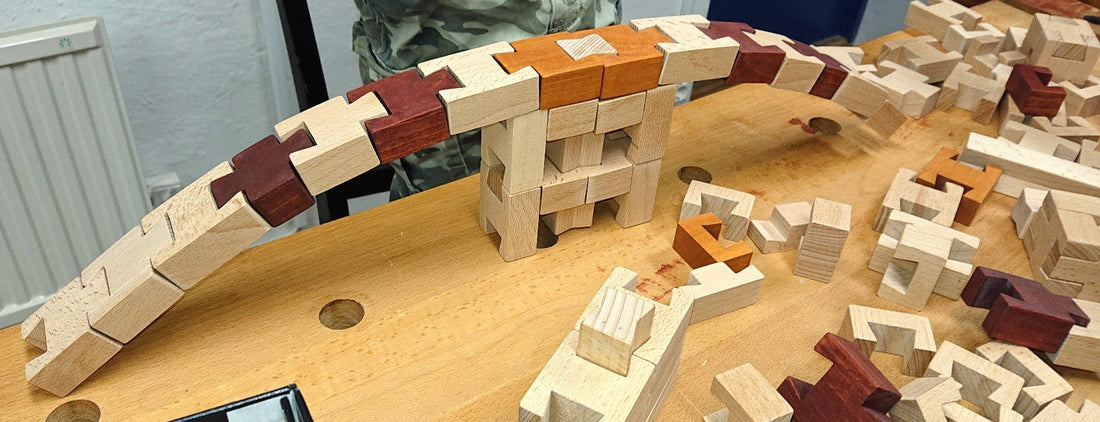
2. Why is Playing with Blocks so Important?
Share
You probably know that play is absolutely necessary and crucial for a child's development. Through play, the child mirrors its surroundings, learns to handle it and make it understandable. The child simply makes the world their own!
In play, the child develops abilities that are used throughout the life journey. Language, cooperation, self-confidence, empathy, fine and gross motor skills, problem-solving skills and creativity are examples of abilities that develop through play. Of course, this happens in all play if a child is given the right conditions, but to varying degrees depending on the design of the play equipment (toy) and the physical circumstances of the child's play.
So why blocks?
- They can work both for solo play and playing together. Social interaction and cooperation are trained.
- They are useful and developmental for children of different ages and stages of development. Playing with bricks works just as well with small children as it does with older children.
- The child can explore, reflect and describe their surroundings with the help of the blocks.
- Playing with blocks develops children's creativity and curiosity and stimulate interest in nature, society and technology.
- By building, creating and constructing, the child acquires an understanding of mathematics and science, by practicing spatiality, form and properties.
- Playing with blocks can stimulate conversations where language is practiced and developed. The child learns concepts and with the help of playing with blocks, the child can process and understand events.
- By building and puzzles with blocks, the child trains to solve problems. The importance of designing a strategy and planning one's work are skills that are developed.
- The child explores their own reality with all their senses instead of acquiring the screen's image of reality.
- Perseverance is a virtue, in fact it is an important quality to practice. If I'm going to learn anything, it's important not to give up, but to try again and again.
- Through play, social skills are developed, such as the ability to cooperate, share, communicate and resolve conflicts. By creating playful learning environments, we give more children the opportunity to be included and involved.
Excerpt from the curriculum for Swedish preschool, Lpfö 18 revised 2025.
(Translated from the Swedish version)
"There are many ways to discover things. You can create situations where the child's all senses are active, preferably by using different aesthetic forms of expression. It can facilitate the children's knowledge development – knowledge that is created in context and dialogue. Feel free to use open-ended questions in the conversation with the children. It leads to an investigation and can give the children the opportunity to pay attention to something they may not have seen or discovered before."

A desire to play gives the desire to learn and explore.
Help our children play!
